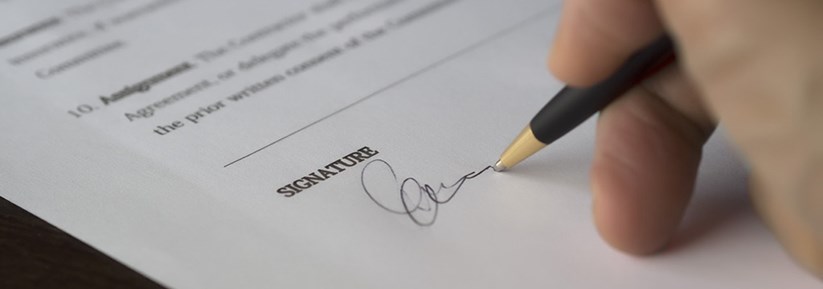How Can a Solicitor Help Me Buy a Home?

What is the role of a convenyancer / solicitor in the purchase of a property?
In the UK, after you make an offer to purchase a new home you will need to find a solicitor to help with conveyancing, the legal transfer of homeownership from vendor to the buyer. The process starts once your offer is accepted and ends once you have received the keys.
While it is possible to do the conveyancing yourself it is quite difficult, and you will be required to use a solicitor if you are taking out a mortgage on the property.
Choosing a conveyancer or a solicitor
There are several things to consider when looking for the right conveyancer: you can either use a conveyancing solicitor or a licensed conveyancer, both of whom are regulated and insured by different bodies.
Generally, both will handle the process of transferring the property in the same way. The main difference is that solicitors will have more extensive knowledge of different aspects of the law, while conveyancers are lawyers who specialise in property alone.
If your situation has more complicated legal elements – the vendors are going through a divorce, for instance, or there is a boundary dispute – you will be best to go with a solicitor; otherwise, going with a conveyancer is usually the better, and cheaper, choice.
It is generally not advisable to use a conveyancer who was recommended by your estate agent. Typically, they will be more expensive, as the estate agent receives a commission for the recommendation. You also want to make sure that your solicitor is working in your best interests, and there can be times when you don’t want the estate agent to know everything about your situation.
You should try to obtain at least three quotes for conveyancing services, and speak with the solicitors or conveyancers before making your decision. You will want to choose someone you are comfortable with, and who fits your budget.
Contracts and fees
Once you have selected a conveyancer, they will draw up a contract detailing their charges, additional fees and a schedule of deposits. The contract will cover things such as stamp duty, land registration fees and the costs for the various property searches conducted by the conveyancer (see below).
After the contract has been agreed and signed, the solicitor will contact the seller’s solicitor. They will provide you with the forms the seller has completed and give you a chance to ask any questions about the property. If it is a leasehold property, this is the time to confirm the length of the lease.
Property searches
There are certain things about a property that you won’t find out during your viewings or even from your survey. Instead, these facts will come to light during the legal searches conducted by your conveyancer. By being fully informed about the state of the property and the surrounding area in this way, you can then be confident that you want to proceed with the purchase.
Some of the searches will be recommended by the solicitor, while others will be required by your mortgage lender. The searches can include:
- local authority searches
- flood risk assessments
- water authority searches
- environmental searches.
Your solicitor will also be able to help you interpret the searches and advise you about whether they should affect your purchase.
Exchanging contracts and completion
The exchange of contracts is the point of the purchase process at which you are fully committed to buying the property. Up to this point, you will not have put down any money towards buying the property itself.
Your conveyancer will provide you with the contracts you need to sign. These include agreeing a completion date, when the seller will vacate the property and you will receive the keys.
You will also need to transfer the initial deposit to your solicitor before the date of exchange. This is generally 10% of the total cost of the property.
Finally, you will need to agree on the fittings and fixtures inventory, as well as any purchases of furniture from the seller that you may have agreed.
Once you have returned the contract to the solicitor, the actual exchange will take place. This involves both solicitors or conveyancers reading the contracts out on a recorded phone call to ensure the documents are identical, and then sending them to each other in the post.
At this stage, the purchase is legally binding. This means that your deposit is forfeit if you do not complete; similarly, you will be entitled to sue the vendor if they do not sell to you.
The period from exchange and completion is usually between a week and 30 days. On the completion day, you will be able to collect the keys to the property from the estate agent at an arranged time.
After completion, your conveyancer will pay the stamp duty land tax, forward the title deeds to your mortgage lender and send you the remaining legal documents.